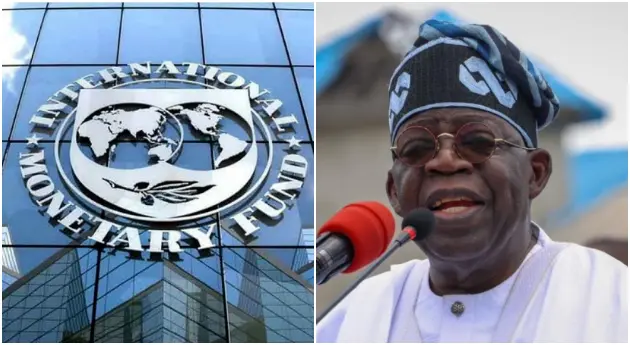The University of Ibadan (UI) in collaboration with the Scottish Institute of Remanufacture, University of Strathclyde, (UoS), Glasgow, UK, recently organised a Remanufacture Workshop, with the theme: ‘Remanufacture of Medical Equipment: Potential Prospects and Challenges in Nigeria.’ The workshop was part of the activities of the project “Remanufacturing: A Key Strategy for Enabling Affordable, Sustainable Healthcare in Developing Countries”, which was funded by UK-based Royal Society through its international collaborative award to the UoS (base of the fund) and UI in December 2018. The Royal Society, founded in 1660, is a Fellowship of many of the world’s most eminent scientists and it is the oldest scientific academy in continuous existence.
The workshop attended by about 70 participants took place in Ibadan, Oyo State, from June 28 to 29, 2022. It aimed at creating awareness about remanufacturing as a sustainable pathway to enable widespread affordable, quality healthcare in Nigeria by ensuring the availability of functioning, high-quality medical equipment, to meet local needs.
Professor Akinwale Coker, Nigeria’s Site Principal Investigator of the Remanufacture Research Grant, Professor of Biomedical and Environmental Health Engineering at UI, said, “We are focused on the healthcare sector because of the very important role that health plays with respect to society.
“If you remember what happened during the global outbreak of the coronavirus and there was this issue of not being able to sustain the infrastructure that could really nip in the bud that particular epidemic in this part of the world. Unfortunately, we even lost some of our elites because they were not able to travel out of Nigeria as usual, for medical care.”
“So we thought that it was important to focus on health and like we heard during the presentations of the international experts, we will go on to some other issues (remanufacture will extend to other sectors, but first we must focus on health).
Speaking on how possible it is to remanufacture healthcare equipment, Professor Coker said, “It is very possible because it is the same principle. Don’t forget that the equipment and devices we use in healthcare are basically mechanical tools that you use every day like the x-ray machine, autoclave, defibrillators, anaesthetic machine, neonatal incubators, and dental equipment. They are mechanical devices and there’s no rocket science about it. It is possible, and it is being done in the developed world.”
How remanufacture will fit in a nation that lacks ‘maintenance culture.’
Professor Coker noted that “Maintenance culture is part of what we’re trying to build. We have talked about introducing this dimension of remanufacturing into our institution’s curriculum, so that we can inject that spirit into our students right from the university. It will be one of the courses that shall be taken.”
The don added that “unless you do that there will be no sustainability. A lot of times our attitude in Nigeria is to use and dump, but when we are talking about remanufacturing, maintenance is key. It is with this that you can get the best out of the concept of remanufacturing.”
The Oyo State Commissioner for Health, Dr Bode Ladipo, at the event, said remanufacture presents an opportunity to turn obsolete health equipment into new products. He noted that working with good hospital equipment brings out the best in healthcare workers.
He said, “We have purchased equipment in the past that have gone moribund within few months. The opportunity of remanufacture will enable us bring back those equipment from their moribund state and utilise them as new products for healthcare.”
Dr Ladipo noted that “The major difference between the healthcare workers we have in Africa, Nigeria inclusive, and the developed world, is the equipment in use.”
“We have been able to show that graduates of our health institutions actually excel when they go outside Nigeria.”
“It is a good step in the right direction to look at remanufacture of equipment within our setting,” he concluded.
Oyo State Commissioner for Education, Science and Technology, Barrister Rahman Abiodun Abdu-Raheem, was present at the event. He noted in his address that remanufacture would present a sustainable pathway to ensure the availability of medical equipment to meet local needs in the country.
ALSO READ FROM NIGERIAN TRIBUNE
Remanufacture explained
Professor Winifred Ijomah, Professor of Sustainable Design and Manufacturing at the Faculty of Engineering, University of Strathclyde (UoS), Glasgow, United Kingdom, and the Director at the Scottish Institute for Remanufacturing (SIR), Glasgow, United Kingdom, attended in her capacity as project lead for the Royal Society remanufacturing project and representative of Strathclyde University as the Grant holder The SIR is a pan-Scotland expertise hub established by the Scottish Government to spearhead the Circular Economy (CE) in Scotland through product recovery (remanufacturing, reconditioning and repair).
Professor Ijomah was one of the main speakers at the workshop and described remanufacture as “the process of returning a used product to at least as-new performance specification and giving the resultant product a warranty that is at least equal to that of a newly manufactured equivalent.”
Professor Ijomah said that remanufacturing has significant benefits in all three areas of sustainability. The economic benefits included 20 to 80 per cent production savings from reduction in processing and the use of virgin materials; while the environmental savings include 50-80% reduction in energy use in production and significant reduction in landfilling, for example, up to 85 per cent of weight of remanufactured product is from used parts that would otherwise have entered landfills.
She said that the social benefits of remanufacturing include providing employment particularly for low-skilled labour as for example up to 60% of the labour force in an automotive remanufacturing company could come from semi- or unskilled workers. Further remanufacturing by reducing production costs enable the production of e produces high quality, low priced products for low income earners.
In her presentation, she distinguished remanufacture from the processes of repair and reconditioning. According to her, in remanufacture the product loses its original identity, and the performance and warranty of the output is greater or equal to that of a new product.
However, in reconditioning, the product retains identity, the performance/warranty fall below new; and when it comes to repair, the product retains identity, while performance/warranty fall below new.
‘Remanufacturing at the heart of circular economy’
There is an increasing shortage of essential raw materials required to manufacture, Professor Ijomah noted.
According to McKinsey Manufacturers survey of 2012, 80% of manufacturing executives see raw materials shortage as key business risk.
She said that 80% of materials used in manufacturing products end up as waste.
Also, the world according to her has just 45 years of gold supply left; antimony, 30 years; tin, 40 years; and silver, 29 years.
“We need a circular economy to be competitive; to maintain our existing industry and boost productivity; and to develop new internal/external economic sectors.
“Product recovery through remanufacturing is at the heart of the circular economy,” Professor Ijomah stated.
Remanufacture around the world
Major economies such as China and America have identified remanufacturing as enabler for future competitiveness, Professor Ijomah posited.
“There is a global race to build national capabilities, that is, skilled workforce, specialist supply chains and legislative frameworks, to exploit emerging opportunities.
“All major industrial regions (US, Taiwan, China, Singapore, Germany, and Scotland) have national Centres of Expertise in Remanufacturing.
“In China, there is a state policy that strongly supports remanufacture as new development area.
“China has the fastest growing market size, said to be about 23 billion pounds in 2020.
“In the EU, the industry is valued at 30 billion pounds, with 70 per cent of the value coming from Germany, the UK, Ireland, France and Italy.”
“Remanufacturing in the UK is worth 5.6 billion pounds.”
She added that there are plenty of opportunities for remanufacturing among developing countries. Professor Ijomah reiterated that, establishing a centre of remanufacture in Nigeria is a major deliverable expected by the funder (Royal Society) from the international collaborative award. She commended the efforts put in so far into this, by Professor Coker and the Nigeria-based Research Associate, Dr Chibueze Achi. She implored the stakeholders present at the workshop to support them to achieve this laudable goal.
Continuing, Professor Ijomah remarked that “developing nations have abundance of the medium/low skilled labour remanufacturing needs’’. She mentioned other inherent advantages as follows:
There will be reduced expenditure on new products. There will be savings on foreign exchange, creation of indigenous workforce and industry; technology transfer through product knowledge gained from remanufacturing the product, and enhanced industrialisation.
In concluding, Professor Ijomah stated that “developing countries have potential to exploit the opportunities from remanufacturing and need to do so.”








